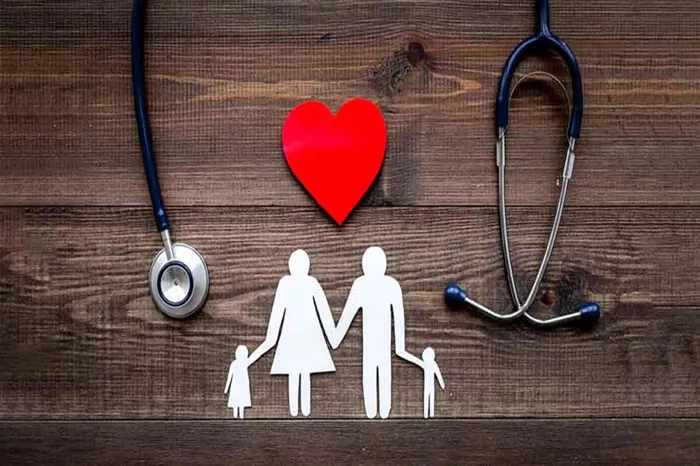Health insurance is an essential aspect of financial planning and well-being. It provides coverage for medical expenses, ensuring that individuals and families are protected against high healthcare costs. This article will explore who needs health insurance and why it is crucial for everyone to consider obtaining it. By understanding the various groups that benefit from health insurance, we can appreciate its significance in maintaining good health and financial stability.
Young Adults
Young adults, typically those aged 18 to 30, often overlook the importance of health insurance. However, this group benefits significantly from having coverage for several reasons:
1. Unexpected Health Issues
Even young, healthy individuals can face unexpected health issues, such as accidents or sudden illnesses. Health insurance ensures they receive the necessary medical care without incurring high costs.
2. Preventive Care
Health insurance plans often cover preventive care services, which are crucial for detecting and addressing health issues early. Regular check-ups, vaccinations, and screenings can prevent more severe health problems later in life.
3. Financial Stability
Young adults, especially those starting their careers or pursuing higher education, may have limited financial resources. Health insurance provides financial protection, preventing high medical bills from derailing their financial stability.
Families with Children
Families with children have specific health insurance needs to ensure the well-being of both parents and children:
1. Pediatric Care
Children require regular pediatric care, including vaccinations, check-ups, and treatment for common illnesses. Health insurance covers these services, ensuring children receive the necessary care for healthy development.
2. Maternity and Newborn Care
For families planning to have children, health insurance is essential for covering maternity and newborn care. Prenatal visits, labor and delivery, and postnatal care can be expensive without insurance.
3. Chronic Conditions
Children with chronic conditions, such as asthma or diabetes, need ongoing medical care and medication. Health insurance ensures these needs are met without causing financial strain on the family.
4. Accidents and Emergencies
Children are often active and prone to accidents. Health insurance covers emergency care, including visits to the emergency room and any necessary treatments, providing peace of mind for parents.
Individuals with Pre-existing Conditions
People with pre-existing conditions, such as diabetes, heart disease, or cancer, require regular medical care and treatment. Health insurance is crucial for this group because:
1. Regular Medical Care
Pre-existing conditions often require ongoing medical care, including doctor visits, medications, and treatments. Health insurance covers these expenses, ensuring individuals receive the necessary care.
2. Financial Protection
Treating pre-existing conditions can be expensive. Health insurance reduces the financial burden by covering a significant portion of the costs, preventing individuals from facing financial hardship.
3. Access to Specialists
Many pre-existing conditions require care from specialists, who can be costly without insurance. Health insurance provides access to these specialists, ensuring individuals receive the best possible care.
Seniors
Seniors, typically those aged 65 and older, have unique health insurance needs due to age-related health issues:
1. Medicare Coverage
In the United States, seniors are eligible for Medicare, a federal health insurance program. Medicare provides coverage for hospital stays, doctor visits, and prescription medications, ensuring seniors receive the necessary care.
2. Chronic Conditions
Seniors are more likely to have chronic conditions, such as arthritis, hypertension, or diabetes. Health insurance ensures they receive ongoing care and treatment for these conditions.
3. Long-term Care
As people age, they may require long-term care services, such as nursing home care or in-home care. Some health insurance plans offer coverage for these services, reducing the financial burden on seniors and their families.
Low-income Individuals and Families
Low-income individuals and families often struggle to afford healthcare without assistance. Health insurance is vital for this group for several reasons:
1. Medicaid
In many countries, low-income individuals and families are eligible for Medicaid, a government-funded health insurance program. Medicaid provides comprehensive coverage, ensuring access to necessary medical care.
2. Affordable Care Act (ACA) Subsidies
In the United States, the ACA offers subsidies to help low-income individuals and families afford health insurance through the marketplace. These subsidies make health insurance more accessible and affordable.
3. Preventive Care
Access to preventive care is crucial for low-income individuals and families, as it helps detect and address health issues early, preventing more severe problems and reducing long-term healthcare costs.
4. Financial Protection
Health insurance protects low-income individuals and families from high medical costs, preventing financial hardship and ensuring they can access necessary care without worrying about the cost.
See Also: Do I Need International Health Insurance?
Self-employed Individuals and Small Business Owners
Self-employed individuals and small business owners have unique health insurance needs due to the nature of their work:
1. Individual Health Insurance Plans
Self-employed individuals and small business owners often need to purchase individual health insurance plans. These plans provide coverage for medical expenses, ensuring they receive necessary care without facing high costs.
2. Small Business Health Options Program (SHOP)
In the United States, small business owners can offer health insurance to their employees through the SHOP marketplace. This program provides affordable health insurance options for small businesses.
3. Tax Benefits
Health insurance premiums for self-employed individuals are tax-deductible, providing a financial incentive to obtain coverage.
4. Financial Protection
Health insurance protects self-employed individuals and small business owners from high medical costs, ensuring they can focus on their business without worrying about healthcare expenses.
Frequent Travelers
Frequent travelers, whether for work or leisure, need health insurance to ensure they receive necessary care while away from home:
1. Travel Health Insurance
Travel health insurance provides coverage for medical expenses incurred while traveling, including emergency medical care, hospital stays, and medical evacuations.
2. Peace of Mind
Travel health insurance offers peace of mind, knowing that medical expenses will be covered if an illness or injury occurs while traveling.
3. Access to Quality Care
Travel health insurance often includes access to a network of healthcare providers in different countries, ensuring travelers receive quality care wherever they are.
High-risk Occupations
Individuals working in high-risk occupations, such as construction, mining, or firefighting, need health insurance due to the increased risk of injury or illness:
1. Coverage for Work-related Injuries
Health insurance provides coverage for work-related injuries, ensuring individuals receive necessary medical care without facing high costs.
2. Access to Specialists
High-risk occupations may require care from specialists, such as orthopedic surgeons or physical therapists. Health insurance ensures access to these specialists.
3. Financial Protection
Health insurance protects individuals in high-risk occupations from the financial burden of medical expenses, ensuring they can focus on their work without worrying about healthcare costs.
Students
Students, especially those studying away from home, need health insurance for several reasons:
1. Access to Healthcare Services
Health insurance ensures students have access to necessary healthcare services, including doctor visits, vaccinations, and mental health services.
2. Coverage for Accidents and Illnesses
Students may face accidents or illnesses while studying. Health insurance covers these medical expenses, providing financial protection.
3. University Health Plans
Many universities offer health insurance plans for students, providing affordable and comprehensive coverage.
4. International Students
International students often need health insurance to meet visa requirements and ensure they receive necessary care while studying abroad.
Why Everyone Needs Health Insurance
Health insurance is essential for everyone, regardless of age, health status, or occupation. It provides financial protection, access to quality healthcare, and peace of mind. Here are some additional reasons why everyone needs health insurance:
1. Legal Requirements
In some countries, health insurance is a legal requirement. For example, the Affordable Care Act in the United States mandates that individuals have health insurance or face a tax penalty.
2. Risk Management
Health insurance helps manage the risk of high medical costs. By paying a regular premium, individuals transfer the risk of high healthcare expenses to the insurance company.
3. Improved Health Outcomes
Health insurance encourages individuals to seek preventive care and early treatment, leading to improved health outcomes and a better quality of life.
4. Protection for Families
Health insurance protects families by covering medical expenses for all family members, ensuring they receive necessary care without financial strain.
Conclusion
Health insurance is crucial for everyone, providing financial protection, access to quality healthcare, and peace of mind. Young adults, families with children, individuals with pre-existing conditions, seniors, low-income individuals and families, self-employed individuals and small business owners, frequent travelers, those in high-risk occupations, and students all have specific health insurance needs.
By understanding the importance of health insurance and obtaining appropriate coverage, individuals can protect their health and financial well-being. Health insurance is not just a safety net; it is a vital component of a comprehensive approach to maintaining good health and ensuring a secure future.






















